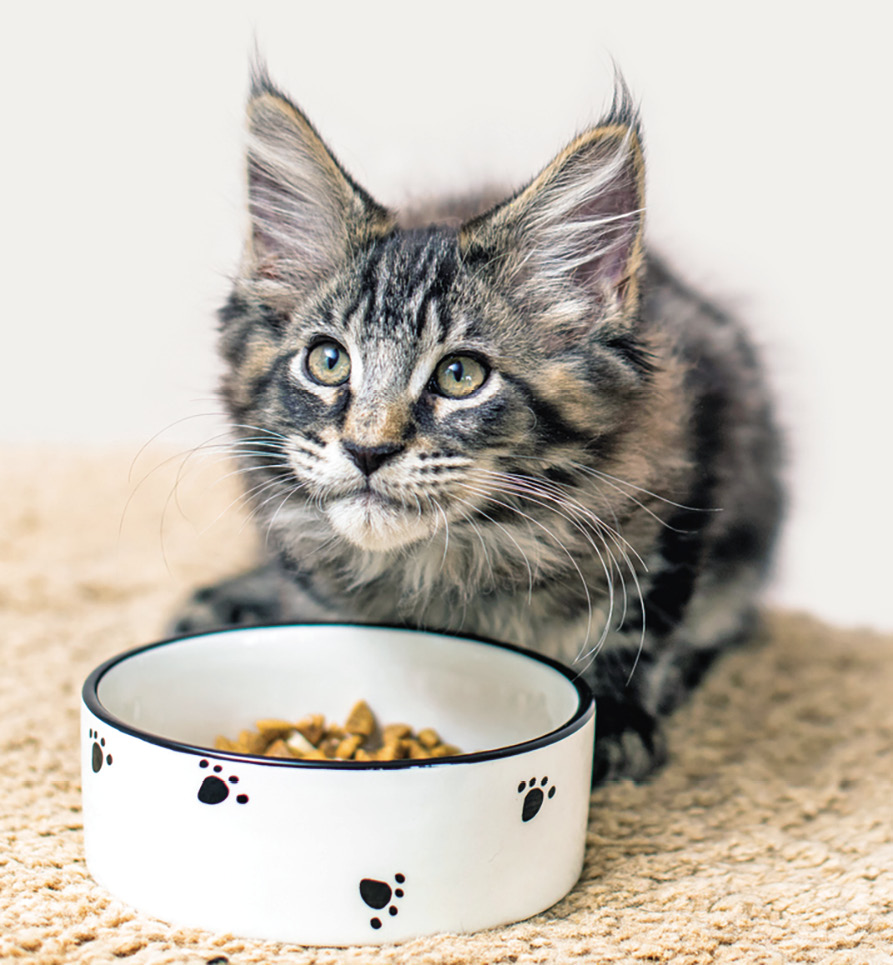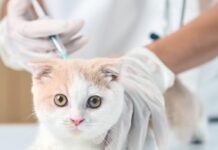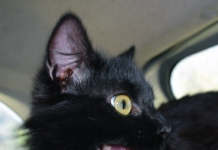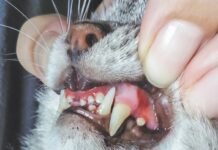Q: I am writing to you about my 6-year-old cat Ellie, who was presumptively diagnosed with IBD about 6 months ago after an ultrasound was performed. I am now feeding her Hills Z/D diet. Typically, how long does a flare-up last? Is there something I can do to help her in the midst of these flare ups? I would appreciate any tips/tricks to assist my little girl in her struggle.
A: Thanks for getting in touch, and I am very sorry to hear of Ellie’s problem. Unfortunately, inflammatory bowel disease (IBD) is a common problem in cats, and perhaps a brief review of this disease and its management in cats would be helpful.
IBD refers to inflammation of portions of the gastrointestinal (GI) tract that occurs for reasons that are not clear, but that is believed to involve an interaction between the diet, the immune system (like an allergic response in the GI tract), and bacterial populations in the GI tract. Genetic influences may play a role in cats, as they do in some people with IBD.
The definitive diagnosis of IBD, and the distinction between IBD and the other most common cause of chronic GI disease in cats, GI lymphoma (a form of cancer), requires biopsies of the GI tract that are obtained either via endoscopy or surgery. Both procedures require the use of general anesthesia.
Given the potential risks associated with general anesthesia, it is not uncommon, nor unreasonable in most cases, to treat presumptively for IBD while monitoring response prior to considering pursuit of GI biopsies.
A major component of the treatment of IBD involves dietary management, with which diets that do not contain usual proteins that can stimulate an immune response in the GI tract are fed.
These diets may either contain protein sources that a cat has never been fed before or contain proteins that have been partially digested (hydrolyzed) into smaller-than-usual pieces so that they are no longer recognized by the immune system as being “foreign.”
It may take several weeks to months, in some cases, for cats with IBD to respond to these diets. If a hypoallergenic diet does not work, a low fat, high fiber, highly digestible diet may be tried. The Z/D diet that you are currently feeding is a hydrolyzed diet, which I believe is a good choice in this case.
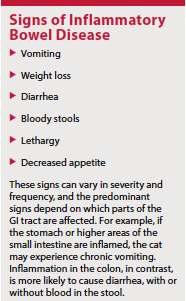 In addition to dietary modification, some cats require medications to decrease inflammation in their GI tracts, and drugs such as metronidazole, corticosteroids, and, in rare cases, stronger immunosuppressive drugs like chlorambucil or azathioprine may be prescribed.
In addition to dietary modification, some cats require medications to decrease inflammation in their GI tracts, and drugs such as metronidazole, corticosteroids, and, in rare cases, stronger immunosuppressive drugs like chlorambucil or azathioprine may be prescribed.
Prebiotics and probiotics may be prescribed to promote beneficial GI flora, and the addition of soluble fiber and supplementation with B vitamins, which may not be absorbed from the diet well in cases of IBD, may be recommended.
IBD may recur in affected cats, and it is common for treatment to involve combinations of therapies to successfully control flare-ups.
I hope that this is helpful, and that Ellie is doing well. Please send us an update when you can.

